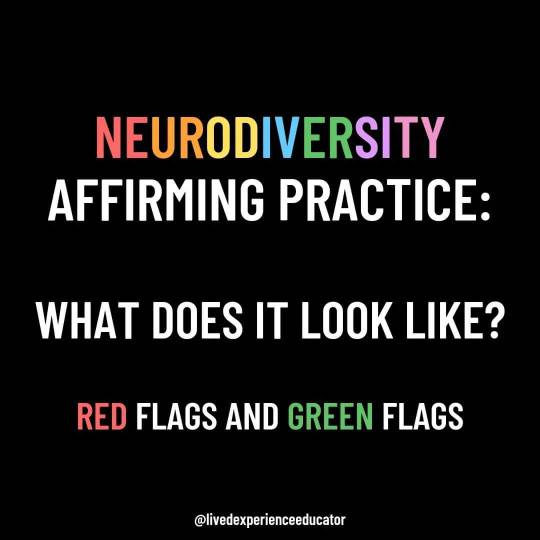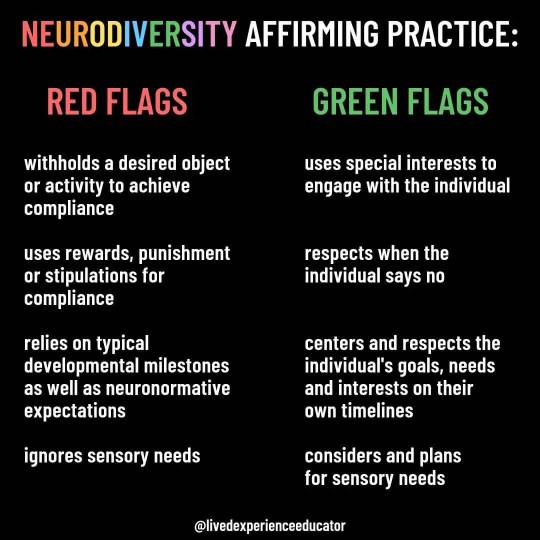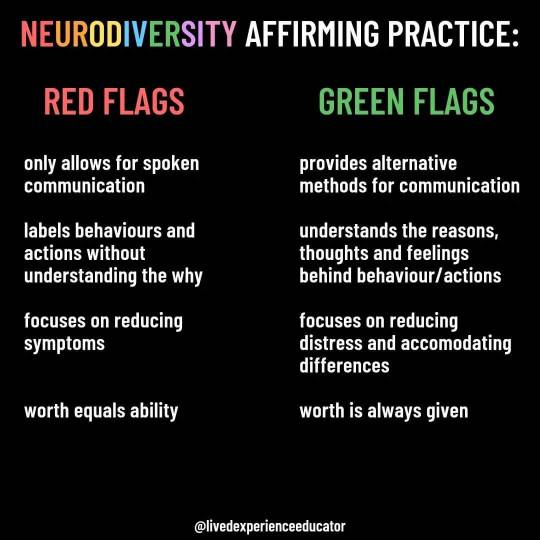Text
I’m having a really bad sensory experience tonight. My skin feels sticky and waxy and it’s crawling. I haven’t had much sleep in the past couple of days and I’m so tired I could cry. I try to accommodate myself as much as possible and sometimes it’s just not enough no matter what I do. I wear my night clothes inside out so the seams don’t bother me, I put lotion on after my showers so my skin doesn’t dry out, I take melatonin to help ease me into sleep when I need it, I have my soft blanket to snuggle my face into so my hair doesn’t tickle along my skin and so much more. I can’t break these routines if I do I have a full on fit. Just sitting here thinking about this and being told my my parents I’m not a retard and I don’t have autism just pisses me off to my core. I need a new family. Someone send me a loving family that accepts autism.
#actually autistic#autism#autism spectrum#girls with autism#women with autism#asd#trauma#self accepectance#autism acceptance
3 notes
·
View notes
Text
I just want to hit the fucking delete button on my life. I feel so invalid. I don’t want to hurt anymore.
2 notes
·
View notes
Text
Source ~ TikTok @/chancelymorgan
From Dr Devon Price's Unmasking Autism:
"Sasson and colleagues, in 2017 for example, found that neurotypical people quickly and subconsciously indentified that a stranger is autistic, often within milliseconds of meeting them. They don't realise that they have identified the person as autistic, though. They just think the person is 'weird'.
Participants in the study were less interested in engaging in conversation with autistic people and liked them less than non-autistics. All based on a brief moment of social data.
It is also important to point out that the autistic people in this study didn't do anything wrong. Their behaviour was perfectly socially appropriate, as was the content of their speech. Though they tried their damnedest to present as neurotypical, their performance had some key tells and was just slightly off and they were disliked because of it."
Study by Noah J Sasson et al, Neurotypical Peers are Less Willing to Interact with Those with Autism based on Thin Slice Judgments
1K notes
·
View notes
Text
Unmasking and trying to live a better life that fits my needs is hard with extensive emotional mental and physical trauma to heal from. Having someone react loudly not only scares me and puts me in a panic it makes me fear for my safety. It makes me feel bad when this happens because I feel like my reaction or my trauma response is hurting someone or I’m doing something wrong. It causes depression because I constantly think “why can’t I be normal?” but I’m not. I’m not use to not living in fear. I’m not use to not having to hide how I feel or my reactions to things. I’m trying to learn but it’s scary.
9 notes
·
View notes
Text
awetistic things {316}
your view of romance, relationships as a whole, and love being completely different from anyone else
70 notes
·
View notes
Text
I hate when people get mad at you for not meeting their social expectations. Being social is absolutely exhausting and unappealing at this point.
8 notes
·
View notes
Text
Random thought of the day:
I've been doing a lot of reflecting lately on my autism. Things I do to not cause issues and stay out of the way. How I have certain OCD habits that have to be met or I can not sleep at night. I've explained in fine detail why I do something so many times. I need to have nonverbal cues explained to me or I feel as though I've said or done something wrong. It just blows my mind that my mother would just invalidate my autism. What about me says I'm not human and I can't be independent if I have autism? I don't get the reasoning.
3 notes
·
View notes
Text




Source ~ FB Lived Experience Educator
Neurodiversity Affirming Practice:
What does it look like?
Red Flags and Green Flags
Red Flags:
🚩 withholds a desired object or activity to achieve compliance
🚩 relies on typical developmental milestones as well as neuronormative expectations
🚩 ignores sensory needs
🚩 only allows for spoken communication
🚩labels behaviours and actions without understanding the why
🚩 focuses on reducing symptoms
🚩 worth equals ability
🚩 sessions revolve around changing someone's behaviour
🚩 measures success by neuronormative, capitalist standards
🚩 encourages independence and self-regulation
🚩reinforces binary ways of thinking e.g. right/wrong, normal/abnormal
Green Flags:
💚 uses special interests to engage
💚 respects when the individual says no
💚 centers and respects the individual's goals, needs and interests on their own timelines
💚 considers and plans for sensory needs
💚 provides alternative methods for communication
💚 understands the reasons, thoughts and feelings behind behaviour/actions
💚 focuses on reducing distress and accomodating differences
💚 worth is always given
💚 allows individuals to define what is ideal functioning for them
💚 client defines what success means for them
💚 accepts co-regulation and interdependence as valid
💚 focuses on what is meaningful and quality of life for the individual
700 notes
·
View notes
Text

Hello everyone,
I thought I’d share some common characteristics of autism, specifically in adults because it is misdiagnosed often. I hope this helps you, your friends, and your family.
Autism
480 notes
·
View notes
Text
This is a mood.
i wish i could put a sticker on my forehead that says “autistic: please handle with care”
366 notes
·
View notes
Note
What was the hardest part for you in growing up with a mother who treated you that way? What would you say to other people going through the same situation?
The hardest part for me was the feeling is being isolated and lonely. I was constantly battling depression and self harm. My mother made me feel like I was never heard because she didn't listen to anything I said. I didn't have friends most of my growing up so I had no one to run to. Any friends I did have I was too ashamed to tell. For anyone going through this, I would urge them to say something. Find someone that will help you. One of my biggest idols preaches “say it, don't show me”. I know it's hard and you feel lonely but harming yourself won't fix it. Say it don't show it. That helped me through a lot.
1 note
·
View note
Text
Hello to anyone that reads this and relates. I decided to make this blog about my experiences figuring out I have autism. This is my personal experience and understanding of ASD and how I got to where I am through trauma that was inflicted and the masking I was forced to learn to make me “normal”. I am in no way a medical professional and cannot diagnose anyone. I simply want to share my experience in the hopes that it helps someone out there realize they aren't alone and they are valid. So allow me to tell you my backstory.
My journey started when I was younger. I was always weird to everyone around me. I was picked on a lot when I was younger for my imagination and carefree nature. I had a hard time fitting in with the regular crowd as well so friends were hard to find for me because I wasn't into what most girls liked. I preferred playing pretend with action figures and role-playing. So I usually had male friends.
My family is a bit dysfunctional so I was sheltered and not allowed to have a normal childhood. My mother was very cold to me emotionally. I would have outbursts and tantrums when she left anywhere without me. There were a lot of days while in school she couldn't even be bothered to give me lunch money or make my lunch so I went hungry at school until I came home. Even then I learned to make my meals and not rely on her. If I acted a way she didn't like or had a fit she would punish me or threaten me with the good old “do you want me to give you something to cry about?” which made things worse.
As I got older I learned how not to be and how to repress who I am inside. I also made up excuses for her abuse of me. I use to think that it was because she blamed me for ruining her life by having me at a young age. I know now that she deserves no excuse. Abuse is abuse. So I have her to thank for my heavy masking. Once I got to high school I learned how to mimic others' social behavior accents and all so I had a few friends by that time. Some social cues were still a bit hard for me to pick up so I lost many friends along the way. That didn't bother me though. I rather preferred to be alone because people just seemed to exhaust me.
Eventually, I became content to be alone and just let people come and go from my life and accepted it as a normal part of the whole experience. Jobs came and went due to my managers or superiors not feeling as though I was productive enough and needed to be told exactly what they expected me to do each day. I was always considered resourceful and a jack of all trades because I could envision how something worked or how it would turn out. Everything was a bit of a movie playing in my head when I needed to navigate the best course of action. I always thought everyone did this.
After meeting my now spouse and having some very hard conversations and some warzone-sized issues with communication we began some individual therapy. I was then diagnosed with ADHD and my spouse started getting coping techniques on how to communicate with me. After a lot of advice that was ineffective from a therapist and a fair share of blow-ups, her therapist eventually suggested I had autism and not ADHD, or at least not just ADHD. Before this I had already been watching people with my diagnosis vlog about it and soon figured out I related to them. The occasional ASD video would come up in my fyp and I hardcore related to them and attempted to point out similarities and now it could be causing my issue with communication. Of course with the stigma around autism, no one wanted to see it as a possibility.
After the therapist suggested I had autism they started to give my spouse coping methods on how to help me communicate what I'm feeling or how to say something I might take wrongly. With the trauma that I was holding onto and the lack of emotional intelligence, I would constantly think I'd angered someone or did something wrong. I had a very hard time when I thought I did something wrong or that someone was angry with me. I almost made the situation worse every time. I also struggled with explaining my feelings inside because they felt gigantic and chaotic and I couldn't pinpoint what emotion it was. Everything was just so difficult for me and I didn't understand why.
After jumping through therapists and reading self-help articles everything started to come together. I took the certified ASD tests and came away with an idea of what was going on with me and why nothing worked. The test concluded I was on the spectrum and I was very high masking. I had my answers finally. I started to peel that mask off and learned to be comfortable with who I am. We started implementing coping and communication techniques you would use with a child that was autistic and it worked. Why didn't I know this sooner?
I eventually tried to ask my mother about my childhood and what kind of child I was. She is of course road me off and told me the therapist was uneducated and that I wasn't an r-word. This upset me. She completely invalidated me when I finally feel like I can be myself on the outside and not keep it locked in. I didn't let her get me down or change my mind. This made sense to me so who was she to do that to me? She isn't a doctor how would she know better? I continued with coping and unmasking. Knowing I could unmask when I feel safe was hard. It's still a task and it's still exhausting but I'm doing it. I'm finally starting to feel free and I am much happier in my skin so far. I don't know why anyone would ever try to force someone to be normal when we're beautiful just as we are.
12 notes
·
View notes